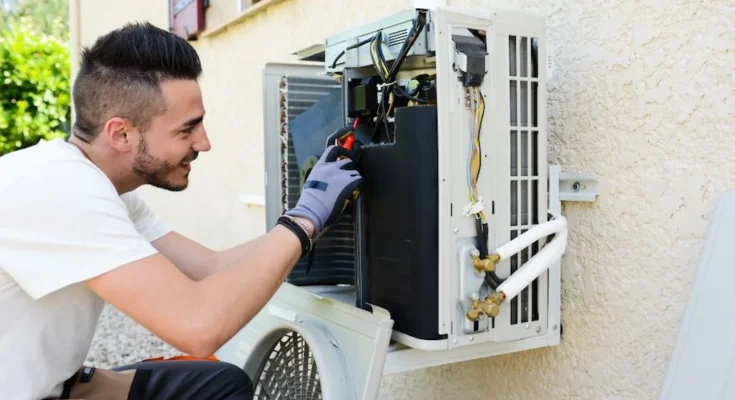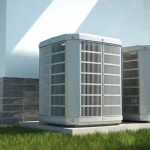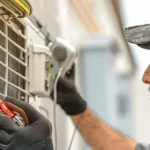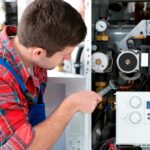Record-breaking temperatures and intense heatwaves are no longer rare events—they’re becoming the new reality. When the outdoor temperature keeps climbing, most air conditioners struggle to keep indoor spaces cool and comfortable. Choosing the best HVAC system for heatwaves isn’t just about comfort; it’s about efficiency, reliability, and preventing your utility bills from skyrocketing.
Having worked in HVAC consulting and seen homes with all kinds of cooling challenges, I can confidently say this: Not all HVAC systems are designed for extreme heat. Some equipment burns more electricity, cools poorly, and cycles on and off constantly. Others maintain consistent cooling even during triple-digit heat.
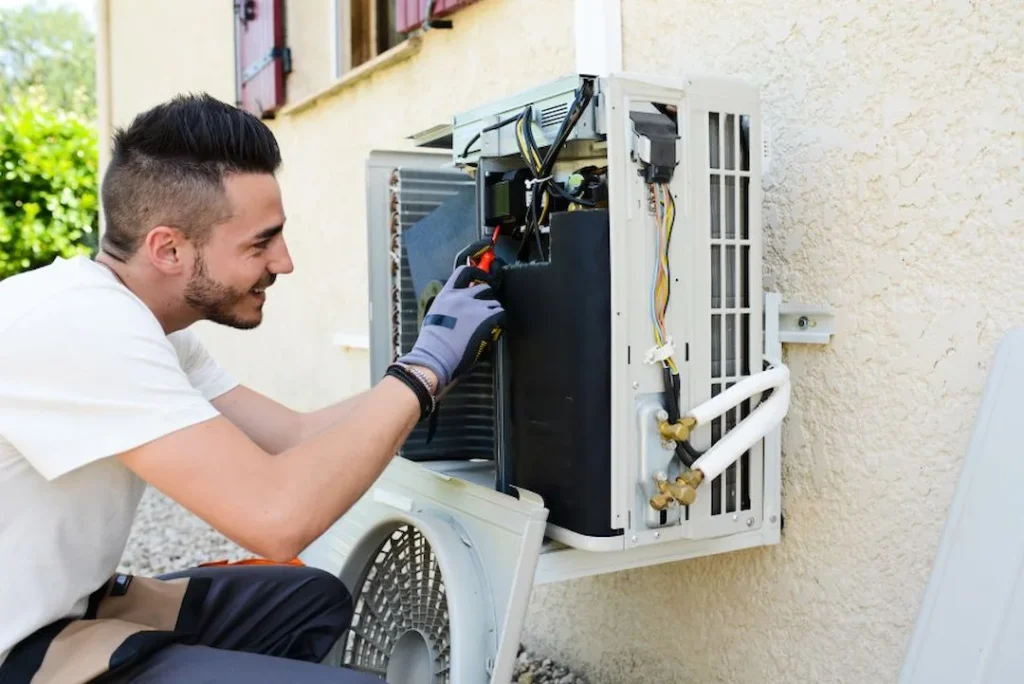
Content
What to Look for When Choosing the Best HVAC System for Heatwaves
Extreme heat requires an HVAC system that can provide cooling fast, maintain consistent temperatures, and run efficiently for longer cycles.
Key features to prioritize:
- Energy efficiency ratings (high SEER2 rating)
- Variable-speed or inverter compressors
- Humidity control
- Smart thermostat compatibility
- Ability to cool multiple zones or rooms
These performance factors determine whether your home stays cool during a heatwave—or becomes a sauna.
Best HVAC Systems for Heatwaves
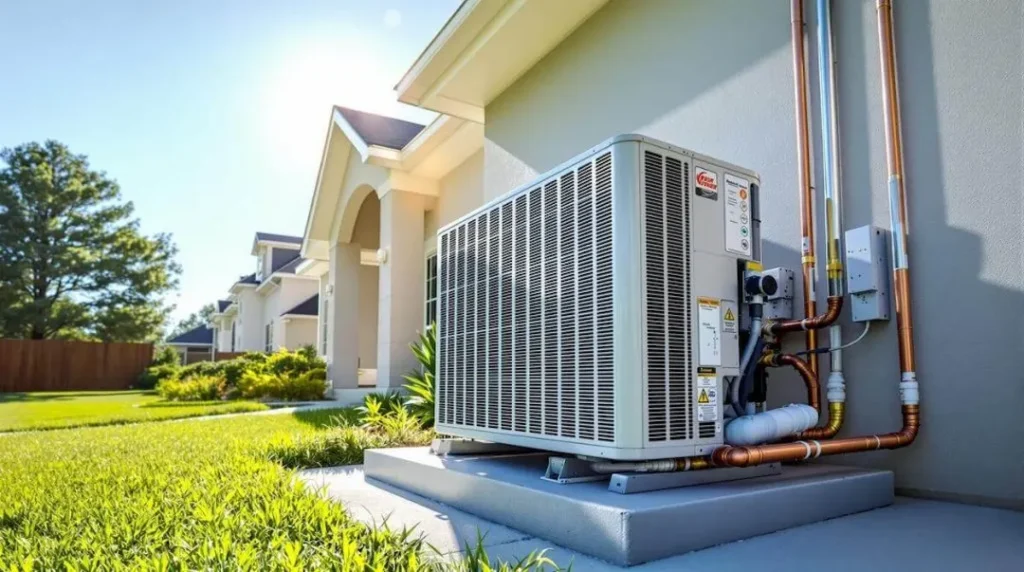
Variable-Speed Central Air Conditioning System
A variable-speed central air conditioner is one of the most efficient HVAC units for hot climates. Unlike traditional ACs that only run at 100 percent power or shut off completely, variable-speed systems automatically adjust to maintain steady indoor temperatures.
Why it performs well during heatwaves:
- Maintains consistent cooling, even during peak heat
- Reduces energy waste by running at lower speeds when possible
- Controls humidity better than single-speed AC units
This option is ideal if you want whole-home cooling without installing new ductwork.
Ductless Mini-Split System: Efficient Cooling Without Ducts
If you need a flexible cooling solution, a ductless mini-split system is one of the best HVAC system for heatwaves for cooling during extreme summer heat. It’s commonly used in homes without ducts or in rooms that never cool properly.
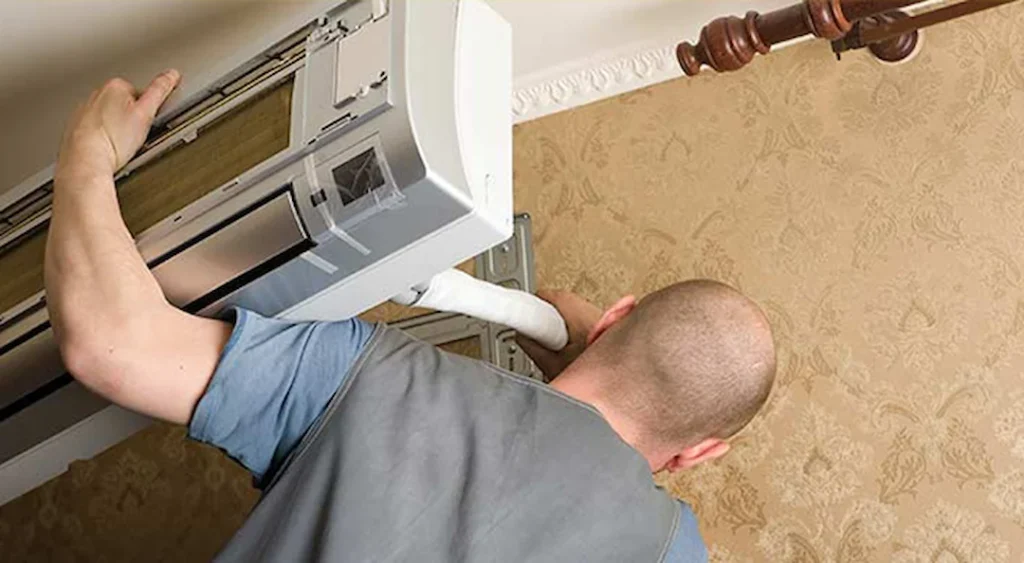
Why homeowners love mini-splits during heatwaves:
- Zone-specific cooling so each room can be set to a different temperature
- Very high energy efficiency (inverter-driven compressor)
- Quiet operation and better humidity control
This system is also popular for garages, attics, home offices, and sunrooms where central AC struggles.
cooling and ventilation system for heatwaves.
Heat Pumps with Inverter Technology
You might be thinking: why consider a heat pump when you want cooling? Because modern inverter-based heat pumps are powerful cooling systems that outperform traditional AC units in many heatwave scenarios.
Reasons heat pumps thrive in extreme weather:
- Reduce temperature fluctuations by running continuously at low speed
- Highly efficient and environmentally friendly
- Work year-round: cools in summer and heats in winter
This is a great choice if you want the most energy-efficient HVAC system for hot climate regions.
Hybrid HVAC System (Heat Pump + Furnace Backup)
If you live in a region where temperatures swing from heatwaves in summer to freezing temperatures in winter, a hybrid HVAC system gives you the best of both worlds.
Benefits:
- Automatically chooses the most energy-efficient mode
- Saves money on fuel costs
- Handles extreme hot and cold weather
Hybrid systems are great for homeowners who do not want multiple cooling/heating systems but still need year-round comfort.
Geothermal HVAC System: Extreme Efficiency
A geothermal HVAC system may sound like something reserved for commercial buildings or luxury homes, but it’s becoming increasingly popular among energy-savvy homeowners.
Why geothermal stands out:
- Uses underground stable temperatures instead of outside air
- Efficient even in 110°F+ heat
- Reduces monthly cooling costs by up to 50 percent
This is the ultimate energy-efficient cooling system, but installation requires significant upfront investment.
Real-Life Case Study: How Heatwave HVAC Upgrades Saved a Family’s Summer
Last year, during a long stretch of extreme heat, I worked with a homeowner named James who lived in a two-story home. His older air conditioner was constantly running, yet his upstairs bedrooms stayed hot and humid. Running ceiling fans didn’t help, and his electricity bill jumped over $480 for July alone.
We ran diagnostics and found that his single-speed AC unit couldn’t handle extreme heat. It would hit a temperature limit, shut off, and restart repeatedly.
We replaced his system with a ductless mini-split system with inverter technology for the upstairs level.
Results:
- Temperature dropped from 84°F to 72°F within an hour
- Humidity levels decreased noticeably, improving comfort
- His next month’s utility bill dropped by 32 percent
He told me, “I wish I had switched earlier. The difference is night and day.”
This experience reinforced what I often say: selecting the right best HVAC system for heatwaves is more than a purchase—it’s an investment in comfort and energy savings.
Smart Thermostats and Zoned Cooling
Even the best HVAC system for heatwaves equipment becomes inefficient if temperatures aren’t managed correctly. Smart thermostats learn your routines and adjust cooling automatically.
Benefits:
- Lowers energy usage
- Prevents overcooling unoccupied rooms
- Allows remote temperature control from your phone
Pairing zoning and smart thermostats turns your HVAC setup into a true heatwave cooling solution.
HVAC Maintenance: A Must During Heatwaves
Heatwaves push AC systems to their limits. Proper maintenance can prevent breakdowns and extend system lifespan.
Maintenance checklist:
- Replace filters monthly during summer
- Clean outdoor condenser coils
- Check refrigerant levels
- Inspect ductwork for leaks
Simple maintenance can boost efficiency by up to 20 percent.
Final Thoughts: Stay Cool, Stay Efficient
Now that you know which systems outperform during extreme heat, you can confidently decide on the best HVAC system for heatwaves based on:
- Your budget
- Size of your home
- Whether you need whole-home cooling or zone cooling
- Plans for long-term energy savings
Whether you choose a ductless mini-split, a variable-speed central AC, or a geothermal heat pump, the goal is the same: consistent comfort, lower energy bills, and reliable performance during the hottest days of the year.
FAQs
How do I know if my HVAC system is struggling during a heatwave?
If your AC runs nonstop, rooms stay warm, or energy bills spike, your system may not handle heatwaves efficiently.
Can a smart thermostat improve cooling during extreme heat?
Yes. A smart thermostat optimizes cooling cycles and reduces energy waste during heatwaves.
What temperature should I set during a heatwave?
Set your thermostat between 72°F–76°F. Avoid frequent temperature changes to maintain efficiency.

Christine Kelley is a dedicated home blogger who has been blogging for over six years. She covers everything home related. Christine also loves writing posts about her travels to Europe with her husband and two children.

